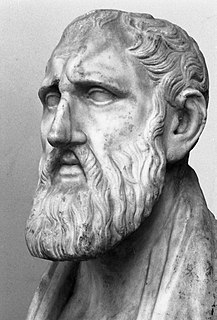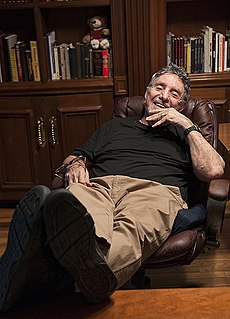A Quote by Marcel Proust
We ought at least, from prudence, never to speak of ourselves, because that is a subject on which we may be sure that other people's views are never in accordance with our own.
Related Quotes
The world is filled with the proverbs and acts and winkings of a base prudence, which is a devotion to matter, as if we possessedno other faculties than the palate, the nose, the touch, the eye and ear; a prudence which adores the Rule of Three, which never subscribes, which never gives, which seldom lends, and asks but one question of any project,--Will it bake bread?
We ought to be cautious in taking even the best ascertained opinions and practices of the primitive Church for our own. If it could be satisfactorily shown that they esteemed it authorized and transmitted forever, that does not settle the question for us. We know how inveterately they were attached to their Jewish prejudices, and how often even the influence of Christ failed to enlarge their views. On every other subject succeeding times have learned to form a judgement more in accordance with the spirit of Christianity than was the practice of the early ages.
O Lord, may I never want to look good. O Jesus, may I always read it all: out loud and the very way it should be. May I never look at the other findings until I have come to my own true conclusions: May I care for the least of the young: and become aware of the one poem that each may have written; may I be aware of what each thing is, delighted with form, and wary of the false comparison; may I never use the word "brilliant."
A kind Providence has placed in our breasts a hatred of the unjust and cruel, in order that we may preserve ourselves from cruelty and injustice. They who bear cruelty, are accomplices in it. The pretended gentleness which excludes that charitable rancour, produces an indifference which is half an approbation. They never will love where they ought to love, who do not hate where they ought to hate.
Workers for Christ are never to think, much less to speak, of failure in their work. The Lord Jesus is our efficiency in all things; His Spirit is to be our inspiration; and as we place ourselves in His hands, to be channels of light, our means of doing good will never be exhausted. We may draw upon His fulness, and receive of that grace which has no limit.
If sophistication is a matter of being in control of our primary reactions, we may now be sophisticated. At least we shall be fairly confident of ourselves and may, with any luck, be confident of others. Our object will be to enjoy our selves. But to make sure that our names are permanently on the cast list, it will be advisable to be of interest to others. This aim must never be confused with the desire to be popular.
Every one ought to study the Bible with two ends in view: his own growth in knowledge and grace, and passing it on to others. We ought to have four ears,- two for ourselves, and two for other people. My Bible is worth a good deal to me because I have so many passages marked that, if I am called upon to speak at any time, I am ready. We ought to be prepared to pass around heavenly thoughts and truths, just as we do the coin of the realm.
There are various art forms we may or may not have talent for, may or may not have time for, and we may or may not be able to express ourselves in, but we ought to consider this fact-that whether we choose to be an environment or not, we are. We produce an environment other people have to live in. We should be conscious of the fact that this environment which we produce by our very 'being' can affect the people who live with us or work with us.
We never really are the adults we pretend to be. We wear the mask and perhaps the clothes and posture of grown-ups, but inside ourskin we are never as wise or as sure or as strong as we want to convince ourselves and others we are. We may fool all the rest of the people all of the time, but we never fool our parents. They can see behind the mask of adulthood. To her mommy and daddy, the empress never has on any clothes--and knows it.
If we really believed that those who are gone from us were as truly alive as ourselves, we could not invest the subject with such awful depth of gloom as we do. If we could imbue our children with distinct faith in immortality, we should never speak of people as dead, but passed into another world. We should speak of the body as a cast-off garment, which the wearer had outgrown; consecrated indeed by the beloved being that used it for a season, but of no value within itself.
But if there has been on this earth no real, perfect human life, no love that never cooled, no faith that never failed, which may shine as a loadstar across the darkness of our experience, a light to light amidst all convictions of our own meanness and all suspicions of other's littleness, why, we may have a religion, but we have not a Christianity. For if we lose Him as a Brother, we cannot feel Him as a Saviour.





































